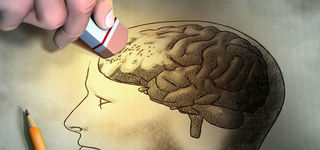Ethics and Morality
Are Liars Less Human?
New research reveals the link between dehumanization and unethical behavior.
Posted November 27, 2018

Most of us don’t think animals care about morality. At least, not in the same way that humans do. While animals act on instinct to survive, human beings are unique in our ability to reason about right and wrong. In fact, research demonstrates that people believe moral sensibilities distinguish us from other animals.
People think only humans can be moral. Could this mean that people feel less human after doing something wrong?
That’s the question Maryam Kouchaki, Kyle Dobson, Adam Waytz, and Nour Kteily explore in a recent research paper. It’s titled “The Link Between Self-Dehumanization and Immoral Behavior.”
First, they wanted to know whether behaving unethically makes people think of themselves as less human.
To find out, the researchers designed an experiment. First, they divided participants into three groups. There was an ethical condition, an unethical condition, and a neutral condition. Researchers asked participants to recall a memory and write a short essay about it.
In the ethical condition, participants wrote about a time they did something good. In the unethical condition, participants wrote about a time they did something bad. In the neutral condition, they wrote about how they spend their evenings. Researchers asked participants to give lots of details. They told participants to make sure that a person reading it could understand what they went through and how they felt.
Then researchers asked participants to complete 10 items from the Mind Attribution Scale. Researchers used this scale to measure self-dehumanization in the participants. It asks questions like, “How capable are you of doing things on purpose?” and “How capable are you of experiencing emotion?”
People who wrote about a time when they did something bad attributed fewer human qualities to themselves compared to those who recalled a time when they did something good. Recalling unethical behavior made them think of themselves as less human.
Then researchers designed a variation of this experiment. For this experiment, researchers asked participants to write about honesty or dishonesty. This is because they wanted to limit the kinds of memories participants recalled.
Kouchaki and her colleagues again divided participants into three groups. One group of participants wrote about a time they behaved unethically by lying. A second group wrote about a time they behaved ethically by being honest. A third group wrote about how they spent their evenings.
Then they completed the same scale asking about their human capabilities.
People who wrote about dishonesty attributed fewer human traits to themselves compared to those who wrote about honesty. Recalling dishonest behavior made them think of themselves as less human.
In a second set of experiments, researchers asked the reverse question. Does self-dehumanization lead to unethical behavior? Participants in the first set of studies assigned fewer human traits to themselves after writing about bad behavior.
If people feel dehumanized, they might then be more likely to behave unethically.
To explore this question, Kouchaki and her colleagues divided participants into two groups. One group wrote about a time they did not feel like they had full human capabilities.
Some examples include:
- Feeling like they were not capable of self-control
- Not capable of making plans and acting intentionally
- Not capable of remembering things well
- Not capable of experiencing feelings and emotion
- Not capable of feeling pain or pleasure.
A second group wrote about their morning routines.
Next, participants in both groups played a game to win money. They solved puzzles that involved unscrambling letters to spell an English word. Researchers told participants they would be paid based on how many words they unscrambled. They also told them they would not check to verify whether participants had, in fact, solved the puzzles.
But there was a twist: Researchers designed one of the words to be unsolvable. This was to measure who would cheat.

The experiment found that participants who wrote about a time they lacked full human abilities were more likely to say they solved the unsolvable anagram.
In fact, nearly half of people in the self-dehumanization group cheated. This is compared to less than one-third of those in the neutral group.
Thus, it seems that unethical behavior leads people to think of themselves as less human. And that thinking of themselves as less human leads people to behave more unethically. One implication of this is that getting people to fully believe in and embrace their human qualities can boost their morality.
The researchers conclude their paper, “Eliminating self-dehumanization could drive people to believe they are good and human and motivate them to act the part.”




